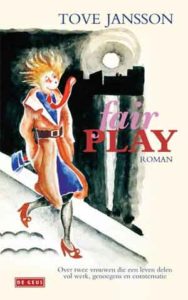



As Ali Smith puts it in her excellent introduction to Fair Play, Jansson writes “in a language so tightly edited that its clarity makes for mysterious transparency.” But once you’ve immersed yourself in a Jansson story, you realize that there is a great complexity simmering under the surface of her work-a whole life that exists, but is not made readily accessible to the reader. And at first, her stories and characters appear to be simple and straightforward. Her prose is sparing and exquisitely clear. This episode is not only emblematic of Jonna and Mari’s time-tested relationship, it also reveals Jansson at her paradoxical best. “They came back to the island from a totally new direction, and it didn’t look the same.” “Suddenly the sea was open and blue and they found themselves a long way out toward Estonia,” Jansson writes. But before the fog lifts, Jonna and Mari have come to an understanding, if not a full reconciliation. Their conversation is short-discreetly hurtful in the way that one only can be after years of intimacy. “Large boats can loom up suddenly, and you don’t hear the bow water in time to start your motor and get out of the way.” Stuck waiting out a dense, chilling fog in a row boat somewhere between the coast of a small Finnish island and Estonia, Jansson’s aging companions, Jonna and Mari, fall into an old argument about their mothers-one had an annoying predilection for painstakingly buttered crispbread the other was an incorrigible cheat at poker. “There is no silence like sitting in a fog at sea and listening,” writes Tove Jansson in her newly-translated story collection Fair Play.


 0 kommentar(er)
0 kommentar(er)
